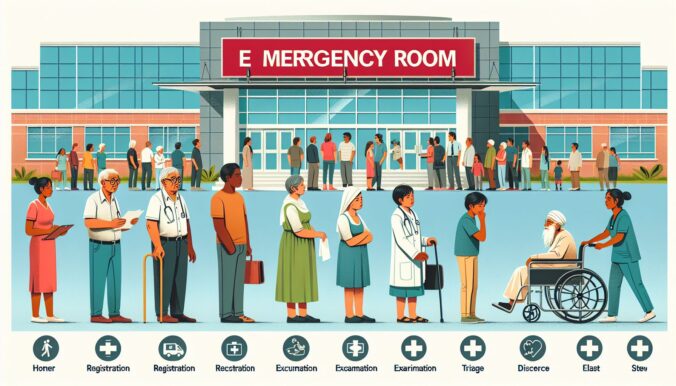When you or a loved one is sick or injured, knowing where to go for medical help is crucial. From minor ailments to major emergencies, having a plan in place can make all the difference in getting the care you need quickly and effectively. In this guide, we will provide an overview of the different options available for medical help and when to utilize each one.
Urgent Care Centers
Urgent care centers are an excellent option for non-life-threatening illnesses or injuries that require immediate attention but are not severe enough to warrant a trip to the emergency room. These facilities are typically open outside of normal business hours, making them a convenient choice for those who need medical assistance after hours or on weekends.
Primary Care Physician
Your primary care physician should be your first point of contact for routine medical issues and preventative care. They can provide ongoing care, monitor chronic conditions, and refer you to specialists when needed. It’s important to establish a good relationship with your primary care physician to ensure prompt and personalized care.
Emergency Room
In cases of severe illness, injury, or other life-threatening emergencies, the emergency room is the best place to seek medical help. Emergency rooms are open 24/7 and staffed with highly trained medical professionals who can quickly assess and treat critical conditions. If you are experiencing chest pain, difficulty breathing, severe bleeding, or any other symptoms that require immediate attention, do not hesitate to go to the nearest emergency room.
Telemedicine
Telemedicine has become increasingly popular in recent years, allowing patients to consult with healthcare providers remotely through phone or video calls. Telemedicine can be a convenient option for seeking medical advice, getting prescriptions refilled, or monitoring ongoing health conditions from the comfort of your own home.
Pharmacies
Many pharmacies offer walk-in clinics or consultations with pharmacists for minor health concerns such as colds, flu symptoms, or medication questions. Pharmacists can provide over-the-counter treatments, recommend products, and advise on when to seek further medical help.
In conclusion, knowing where to go for medical help can greatly impact your overall health and well-being. By understanding the different options available and when to utilize each one, you can ensure that you receive the appropriate care in a timely manner. Whether it’s a routine check-up with your primary care physician or a trip to the emergency room for a critical condition, being proactive about your health is essential. Remember, when in doubt, seek medical help promptly to avoid any potential complications.
